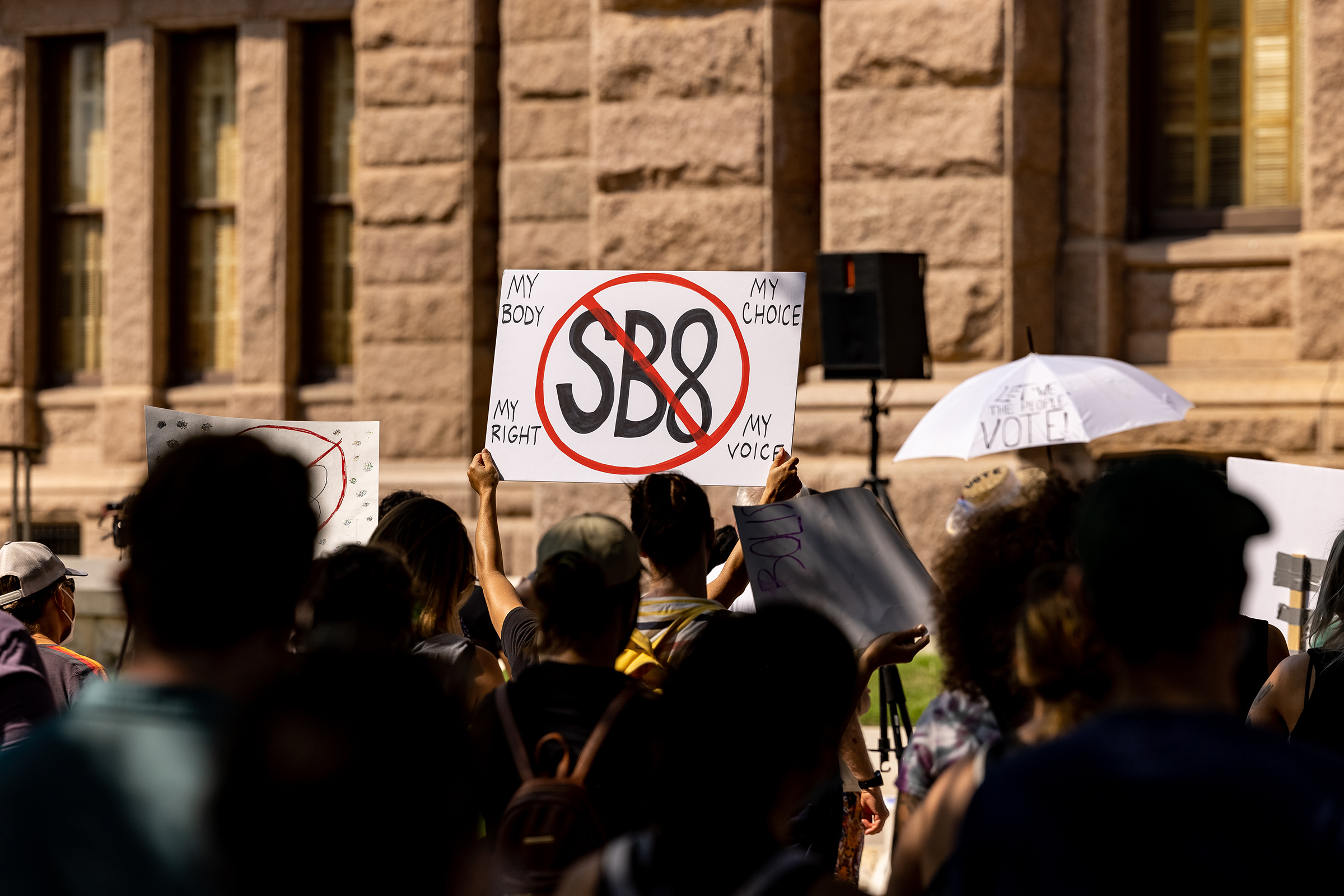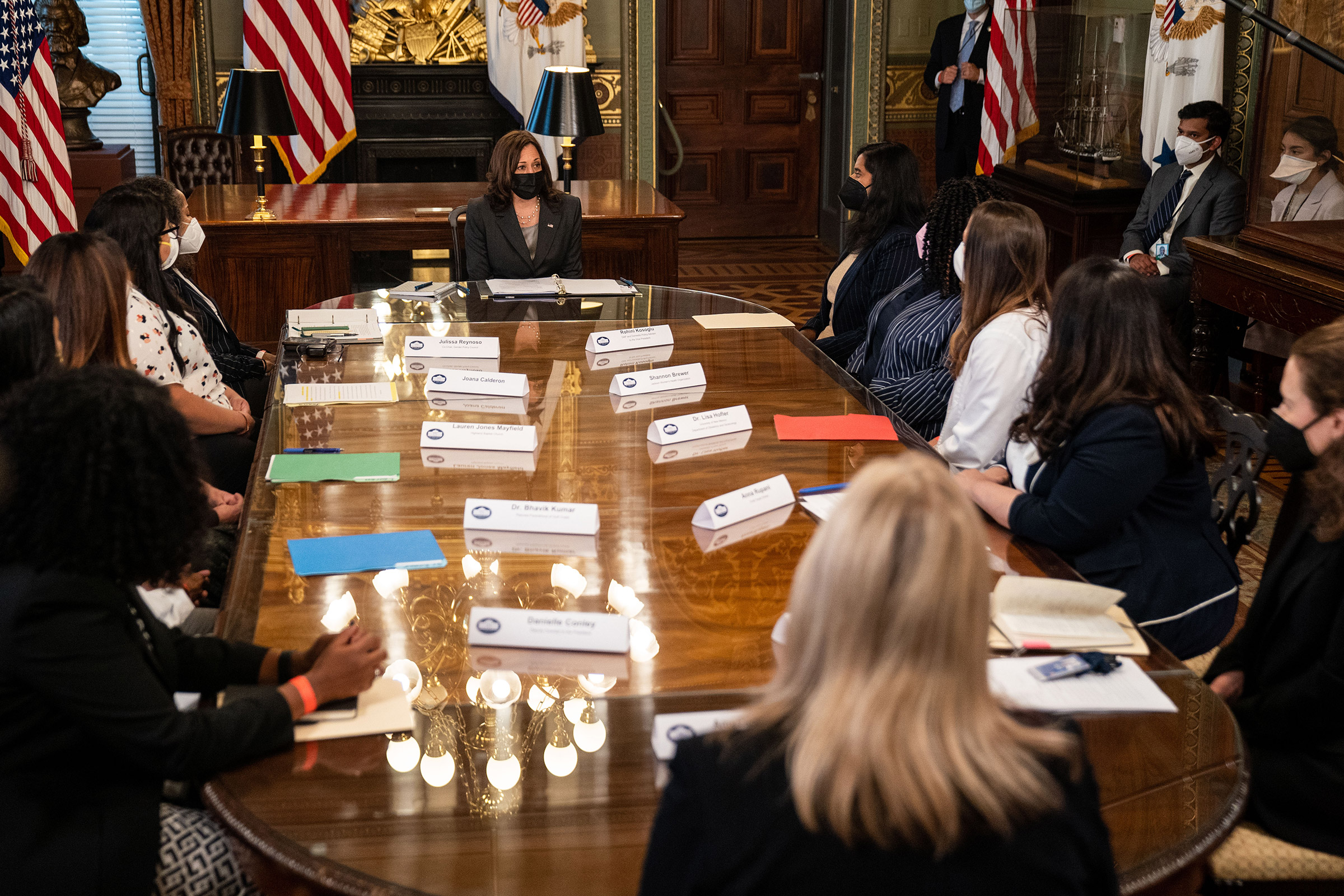
As a Baptist pastor from a midsize Southern city in a conservative red state, I know firsthand who suffers when politicians attempt to limit the right of every person to determine whether, when and how to become parents. I also know how vital it is for people of faith to speak up in these religious spaces and show how strongly we disagree with government officials who would play politics with the health and well-being of people from our communities.
That’s why when I was invited to join Vice President Kamala Harris’ roundtable of patients and health care providers facing the impact of abortion restrictions in their states this month, I was grateful for the opportunity to represent the tens of thousands of clergy around the country who strongly support access to reproductive health care—including abortion access—as a moral issue and a calling supported by our faith’s first teaching to do no harm and love our neighbors. I wanted the Vice President to understand how a law like Texas’s radical Senate Bill 8–which bans most abortions after around six weeks and empowers private citizens to sue anyone who helps a pregnant person get an abortion after that period–might make my job more difficult in Kentucky.
Read More: In Texas, Rape Crisis Centers Struggle to Respond to New Abortion Law
More from TIME
As a minister to young adults, I sit with people trying to discern what’s next in their life. My job involves listening deeply, affirming God’s presence and supporting decisions. But under this extreme Texas law, someone can be sued by a neighbor, an abusive partner or even a complete stranger simply for helping a patient access abortion care. That even includes clergy members who provide counseling to members of our communities who have decided that having an abortion is best for them. In short, my colleagues and I could be sued for supporting our communities and providing counsel.

Furthermore, this vigilante approach may deter someone from confiding in their pastor. When folks cannot seek the care of their pastor, holy ground is jeopardized, and everyone is hurt. The ripple effects of this unconstitutional law extend beyond Texas courthouses and into the sanctums of our most sacred relationships.
Read More: Why Access to Birth Control Is No Substitute for Abortion Rights
Essentially, S.B. 8 cruelly isolates people from their support systems. Instead of passing laws that help keep people safe, some politicians are passing laws that put people at higher risk for adverse health outcomes and other negative impacts, especially if they’re already from vulnerable communities. At a moment when we have all come to understand the importance of our support networks amid crisis and uncertainty, patients now stand to find themselves alone.
In my faith tradition, Jesus commands us to love one another. Jesus did not admonish his followers to judge their neighbor, to shame their neighbor or to keep watch that their neighbors follow the law. Jesus certainly did not invite his followers to sue their neighbor.
Read More: The Supreme Court Just Took Up a Case That Poses a Major Threat to Roe v. Wade
A young woman once called me from her college dorm room in tears, overwhelmed by an unexpected pregnancy. Her conservative religious parents had abandoned her, and she was scared that God would too. She asked me for reassurance that she was still loved. As a pastor and as a Christian, I knew it was my duty to offer her the love of God. Those in fear and despair should never be abandoned, and we certainly should never pass laws that prevent us from showing love and care to our neighbors.
Love means supporting people as they make the reproductive decisions that are right for them. Love means standing by our neighbors as they determine the most intimate and personal parts of their lives. To love them is to trust them. Let’s choose love.
More Must-Reads From TIME
- The 100 Most Influential People of 2024
- Coco Gauff Is Playing for Herself Now
- Scenes From Pro-Palestinian Encampments Across U.S. Universities
- 6 Compliments That Land Every Time
- If You're Dating Right Now , You're Brave: Column
- The AI That Could Heal a Divided Internet
- Fallout Is a Brilliant Model for the Future of Video Game Adaptations
- Want Weekly Recs on What to Watch, Read, and More? Sign Up for Worth Your Time
Contact us at letters@time.com